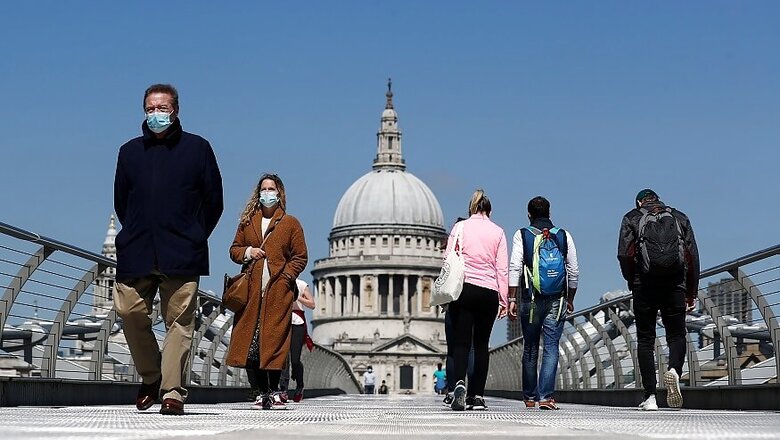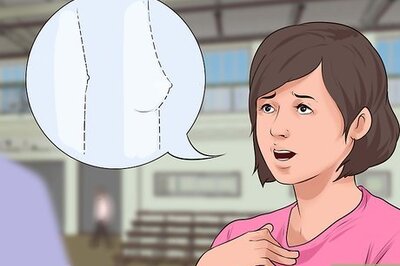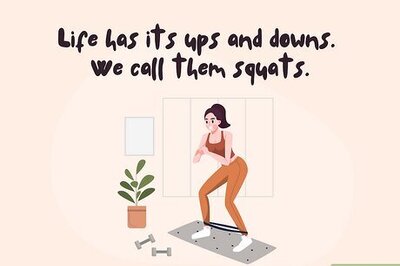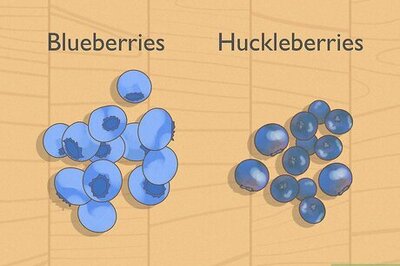
views
London: Britain's stand-in leader resisted pressure on Sunday to explain how the government plans to ease a coronavirus lockdown that has been in place for a month, warning that hasty action could result in a second peak of infections.
Foreign Secretary Dominic Raab has been deputising for Prime Minister Boris Johnson for three weeks, since he was taken to hospital with a serious case of COVID-19. Johnson, who has been recovering in the countryside since April 12, will resume full-time work on Monday and is "raring to go", Raab said.
Appearing on political TV shows in his last day at the helm, Raab said the government was working privately on how to move out of the lockdown, but that speculating in public might dilute the current guidance to stay at home.
"We are at a delicate and dangerous stage and we need to make sure that the next steps are sure-footed," Raab told Sky News.
"We are proceeding very cautiously and we are sticking to the medical advice, the scientific advice, with the social distancing measures, at this time, while doing all the homework to make sure that we're prepared in due course for the next phase."
The official number of deaths related to COVID-19 in hospitals across the United Kingdom rose above 20,000 on Saturday, with the overall figure likely to be significantly higher once deaths in care homes and hospices are tallied.
The economic news has been equally dire. Businesses have reported an historic collapse in demand, retail sales have plunged by the most on record and government debt is surging.
With a Bank of England interest rate-setter warning that the economic contraction could be the worst in centuries, the data added to pressure on the government to give some indication of when and how people and businesses would be able to get to work.
Pressed on this in a BBC interview, Raab would say only that there would not be a "binary easing of measures" but rather a gradual progression to a "new normal".
NOT CREDIBLE
Opposition Labour Party leader Keir Starmer argued in an open letter to Johnson that the British government was falling behind the rest of the world by refusing to say more.
"Simply acting as if this discussion is not happening is not credible," Starmer wrote in the letter, which he tweeted on Sunday.
He said the government had been too slow to impose the lockdown, to increase the uptake of testing and to get personal protective equipment (PPE) to hospital and care home staff.
"We need to see a significant step-change in the government's response to this pandemic. Decisions need to be taken quicker and communication with the public needs to be clearer," he said.
The government has set itself a target of 100,000 tests per day by the end of April, though fewer than 29,000 tests were carried out last Friday.
Raab said capacity now stood at 51,000 a day and he expected a surge in tests being carried out in the coming week.
On PPE, he said: "We're doing everything we can in an international supply shortage to get them (health and care workers) the PPE, the equipment that they need, but it hasn't been easy, we hold our hands up. It hasn't been easy for any country."
Doctors, nurses and care home workers have complained of shortages of gowns and, in some cases, of inadequate equipment and unclear guidance on when and how to use it.
The British Medical Association (BMA), which represents doctors, said PPE supply problems "continue to place healthcare workers at risk".
It said health and care staff should be given priority to receive any PPE available, but also urged the government to ask the public to wear masks when leaving their homes.
Ministers and their scientific advisers have repeatedly said there is insufficient evidence to recommend wearing face masks, but many other countries now recommend that everyone does so.



















Comments
0 comment